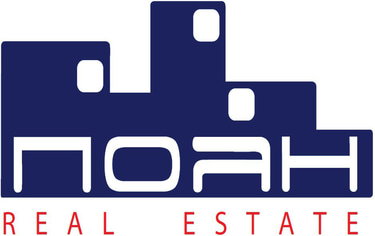The Future of Greek Real Estate: Stability, Sustainability, and Smart Growth
After years of rapid recovery, Greece’s property market is entering a new era — one defined by stability, sustainability, and smart, data-driven growth. Discover the key trends shaping Greek real estate from 2026 and beyond.
REAL ESTATE INVESTMENT
Christos Boubalos - poli.gr
11/3/2025

1. From Recovery to Maturity
Over the past decade, Greece’s real estate market has transformed from a post-crisis recovery story into one of Europe’s most resilient investment destinations.
Between 2018 and 2024, prices in Athens and other urban centers rose sharply — in some areas by over 40% — as foreign capital, tourism, and local demand returned.
But the next phase, beginning in 2026, will not be defined by rapid increases. Instead, the focus is shifting toward maturity, quality, and stability.
The market is stabilizing, with selective growth in high-value sectors such as new constructions, sustainable housing, and coastal developments.
2. A Stable Market in an Unstable World
While much of Europe faces volatility — from inflation to housing shortages — Greece offers something rare: balance.
Three factors are driving this new stability:
1️⃣ Controlled Supply:
After a decade of limited building activity, new developments are still modest compared to demand, preventing oversupply.
2️⃣ Diverse Demand:
Buyers come from multiple segments — local professionals, digital nomads, EU retirees, and investors from the Middle East and North America.
3️⃣ Strong Tourism and Rental Demand:
Tourism supports short- and medium-term rentals, creating hybrid income models for investors who combine personal use with profit.
In short, Greece has moved from speculation to sustainable real estate economics.
3. Sustainability Becomes the New Standard
Environmental performance is no longer optional — it’s now a core value of Greek real estate.
Developers, architects, and buyers are prioritizing:
Energy-efficient construction (A+ or higher).
Solar power integration and smart-home automation.
Water conservation and natural ventilation systems.
Sustainable materials and passive cooling design.
These features reduce operating costs and qualify for EU incentives, while boosting long-term resale value.
Greece’s sunny climate and expanding renewable energy sector make it a perfect match for eco-friendly housing.
4. Smart Growth and Boutique Developments
The future of real estate in Greece is not about size — it’s about precision and identity.
Rather than massive complexes, investors are focusing on boutique developments: small-scale, design-driven projects that combine architectural aesthetics with sustainability and privacy.
Examples include:
Luxury villas in coastal Evia or Peloponnese.
Small apartment buildings in Marousi or Glyfada.
Mixed-use properties combining residential and hospitality spaces.
These projects are more adaptable, require lower capital exposure, and achieve higher per-square-meter returns due to their uniqueness and target-market appeal.
5. Digital Transformation and Smart Data
Artificial Intelligence (AI) and data analytics are changing how the market operates.
From property valuations to buyer recommendations, real estate in 2026 will rely heavily on predictive algorithms and smart insights.
AI allows agencies and developers to:
Predict neighborhood growth trends.
Optimize pricing and sales strategy.
Identify energy inefficiencies during design.
Provide personalized property suggestions to clients.
This data-driven approach enhances transparency and speeds up decision-making — turning real estate into a smarter, technology-enabled industry.
6. The Role of Foreign Investment
Foreign buyers remain a key pillar of Greece’s market.
Even after the Golden Visa reform, international demand continues to rise for properties in Athens, Crete, and coastal Evia.
Greece offers several advantages that keep it ahead of other Mediterranean countries:
Stable property laws and EU membership.
Attractive pricing compared to Spain or Italy.
Year-round lifestyle supported by tourism infrastructure.
Strong rental yields, particularly for short-term and mid-term rentals.
The next wave of investors is more sophisticated — seeking energy-efficient, well-located, and legally clear properties rather than speculative opportunities.
7. The Geography of Opportunity
Different regions of Greece are now evolving in distinct ways:
Athens & Suburbs: Continued demand for new energy-class apartments; limited land keeps prices stable.
Northern Greece (Thessaloniki, Halkidiki): Gradual rise in demand from Balkan and Central European investors.
Evia & Peloponnese: Strong interest in boutique seaside homes with direct access from Athens.
Crete & Cyclades: Remain premium markets with high rental performance and consistent appreciation.
For investors, this means a diversified landscape — from affordable inland plots to high-yield coastal villas.
8. The Long-Term Outlook: Real Estate as a Safe Haven
Greek real estate is regaining its traditional role as a store of value.
While global financial markets fluctuate, tangible assets — especially land and property — retain appeal due to stability, usability, and scarcity.
Even moderate appreciation combined with rental income offers real, inflation-resistant returns.
And as technology and sustainability improve property performance, long-term investors will see stronger yields with lower risk.
9. How Poli Real Estate Shapes the New Era
At the center of this evolution are agencies and developers who combine local expertise with forward-thinking strategy.
Poli Real Estate represents this new generation:
blending design, development, and brokerage,
guiding clients toward sustainable and high-return properties,
and managing every step from land acquisition to construction and resale.
Projects like Vigla in Evia illustrate this vision — boutique coastal residences that merge architecture, nature, and technology into a single living experience.
Conclusion
The future of Greek real estate is not defined by speculation, but by stability, sustainability, and smart growth.
The next decade will reward those who focus on quality, design, and environmental awareness, rather than quick gains.
With its strategic location, EU framework, and emerging green economy, Greece stands at the forefront of a new Mediterranean property era.
At Poli Real Estate, we help investors and homeowners make informed, future-proof decisions — connecting vision with opportunity.
Brokerage
Contact
info@poli.gr
+30-6972-666688
+30-6972-885885
© 2025 Poli Real Estate. All rights reserved.
